The BC Teachers’ Federation filed an application to the Labour Relations Board to quash the 28 appointment of Dr. Charles Jago as mediator in the current labour dispute. “On April 2, BCTF President Susan Lambert wrote to Dr. Jago respectfully requesting that he step down as mediator, citing numerous factors that create an apprehension of bias. One day later, Dr. Jago wrote back, saying he declined to withdraw.” Lambert argued that “this government has legislated a biased process and appointed a mediator who not only lacks experience, but evidently lacks impartiality as well.” The BCTF is seriously concerned with insider connections to the BC Liberal Party. In 2006, Jago was on commission to former Premier Gordon Campbell’s Progress Board. The BCTF reports that Jago’s “findings clearly foreshadow positions taken by the BC Public School Employers’ Association at the bargaining table and also reflect policy directions laid out in Bill 22.” Lambert continued, saying “bbviously there is a strong linkage between Dr. Jago’s thinking, and the bargaining and policy objectives of this government.” Jago also admitted to the BCTF that he was “given the opportunity to review and ‘to wordsmith’ a draft of” the draconian Bill 22 before it was tabled in the Legislature. “This was the very legislation he would later be expected to interpret impartially as a mediator.” Jago was appointed on 28 March, shortly after the anti-labour legislation was passed.
Read More: BCTF News Release

 Follow
Follow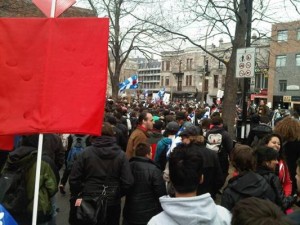
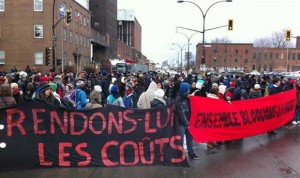


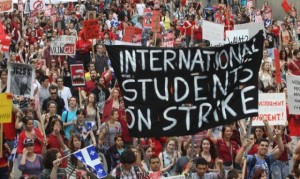
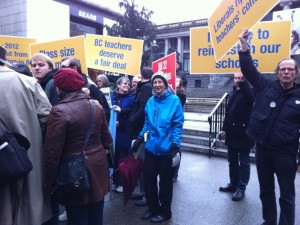


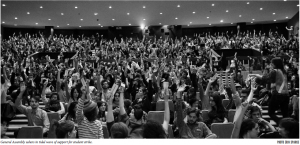
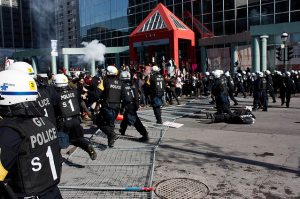

Net Zero Workers
There is a long history of wage freezes for workers that amount to wage cuts against rapidly rising costs of living. There was a time when governments were interested in supporting unions defending wages as a base for fair compensation for the work and a wage increase to maintain a decent standard of living against rising costs. In bad times, unions and employers could give and in depressions the unemployed ranks grow, families collapse, and businesses fold. Currently, governments are finessing to have it both ways. A psychology of governing parties is to assure consumers and investors that the economy is always looking up while convincing workers that the coffers are empty and the economy is recessing. While Athens burns business analysts comment daily that the markets are gaining lost ground. ‘Economic growth is on the horizon while we are pressed to freeze wages and put our fiscal house in order.’ Mixed messages for the consumer as worker, now the net zero worker.
“Net zero,” newspeak for wage freeze, was introduced as a mantra in about 2002 and repeated by the Public Sector Employers’ Council (PSEC) in British Columbia from 2008 to this current point. In 2010 the “net zero mandate” was reinforced in BC government or PSEC policy. Public sector workers were again net zero workers. The BCTF rallied hard against this and are standing up again to pool together all unions, as the governing party in BC again designated teachers as net zero workers. Let them bargain, let them mediate, Minister of Education George Abbott insisted in legislative debate on 12 March, as long as “all of that is within the context of net zero.”
Thirty years ago, top executive salaries were about 15 times that of the average worker’s. Now, those executive salaries are 75 times that of the worker’s. It’s increasingly difficult to accept one’s fate as a net zero worker in the face of skyrocketing executive salaries and lawless mismanagement. Of course, things might change should the net zero worker threaten to become a net zero consumer. Net zero spending was once called a boycott.
10 Comments
Posted in BC Education, Commentary, Employment rights, Government, Politics, Solidarity, Strikes & Labor Disputes, Unions, Working conditions
Tagged Economic Trends, Government, Working conditions